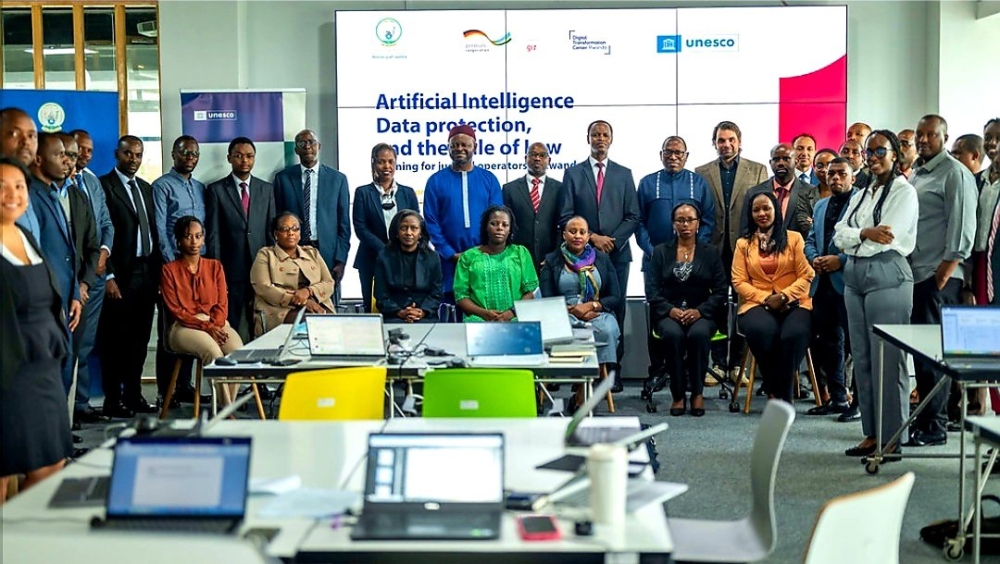The mobile app will serve as a centralized platform for accessing the constitution, laws, regulations, and court decisions.


In a step toward modernizing its justice system, Rwanda is developing an AI-powered mobile application designed to provide instant access to legal texts and case law.
The initiative, led by the Ministry of Justice, is expected to be rolled out by 2026 and aims to make legal information more accessible, understandable, and user-friendly for the general public.
Speaking to The New Times on April 23, the Minister of Justice, Emmanuel Ugirashebuja, emphasized the government's commitment to leveraging cutting-edge technology to transform justice delivery.
ALSO READ: Chief Justice calls for ‘ethical adoption’ of AI in judiciary
"We are bringing the law closer to the people. With AI, you can get legal answers quickly because the system draws directly from a comprehensive legal database," Ugirashebuja said. For example, if someone wants to start a cooperative and asks what’s required, the AI-powered mobile app will instantly provide all relevant information sourced from the law.
According to the minister, the mobile app will serve as a centralized platform for accessing the constitution, laws, regulations, and court decisions. Beyond simply digitizing legal texts, the app will incorporate features that simplify complex legal jargon, making it easier for laypeople to understand and apply the law in everyday situations.
"Legal documents are often difficult for the average person to understand, we want to make legal information easier to comprehend so that citizens can make informed decisions and participate more actively in civic affairs,” he noted.
ALSO READ: Justice minister calls for adoption of technology to enhance access to justice
Among other things, Ugirashebuja mentioned that the country is ensuring that AI systems can process legal vocabulary in Kinyarwanda, as the country’s primary language used in courts and legal settings.
"If a citizen wants to know about rental laws, they can type a question in Kinyarwanda, and the system will immediately display the relevant chapter on tenancy,” he said.
Stella Murungi, Chief Digital Officer at the ministry, highlighted that Rwanda’s multilingual legal system is emerging as a powerful asset in the development of AI tools tailored for justice sector reform.
"With all national laws legislated and gazetted in Kinyarwanda, English, and French, the country holds a unique comparative advantage in the global AI race, particularly in natural language processing,” she added.
Murungi also mentioned that the ministry is also exploring broader applications of AI in the justice sector, such as automating court transcriptions, drafting legal documents, and supporting legal risk assessments.
ALSO READ: Rwanda awarded for using tech, innovation to improve justice
Théophile Mbonera, Permanent Secretary and Solicitor General at the ministry, underscored the need for a strong regulatory framework to guide AI implementation.
"Artificial Intelligence holds immense potential for justice and other sectors, but without clear legal frameworks based on data protection and the rule of law, it also presents risks to privacy, equity, accountability, and fundamental rights,” he said.
According to Rwanda’s ICT Sector Strategic Plan (2024–2029), the country is projected to become a knowledge-based, middle-income economy by 2035. The plan prioritizes the integration of data and emerging technologies to improve institutional efficiency and decision-making, while also fostering inclusive access to digital public infrastructure.
ALSO READ: Rwanda set to integrate AI into ICT legal framework
The strategy positions AI not just as a technical tool, but as a vehicle for transparent, efficient, and citizen-focused service delivery.


